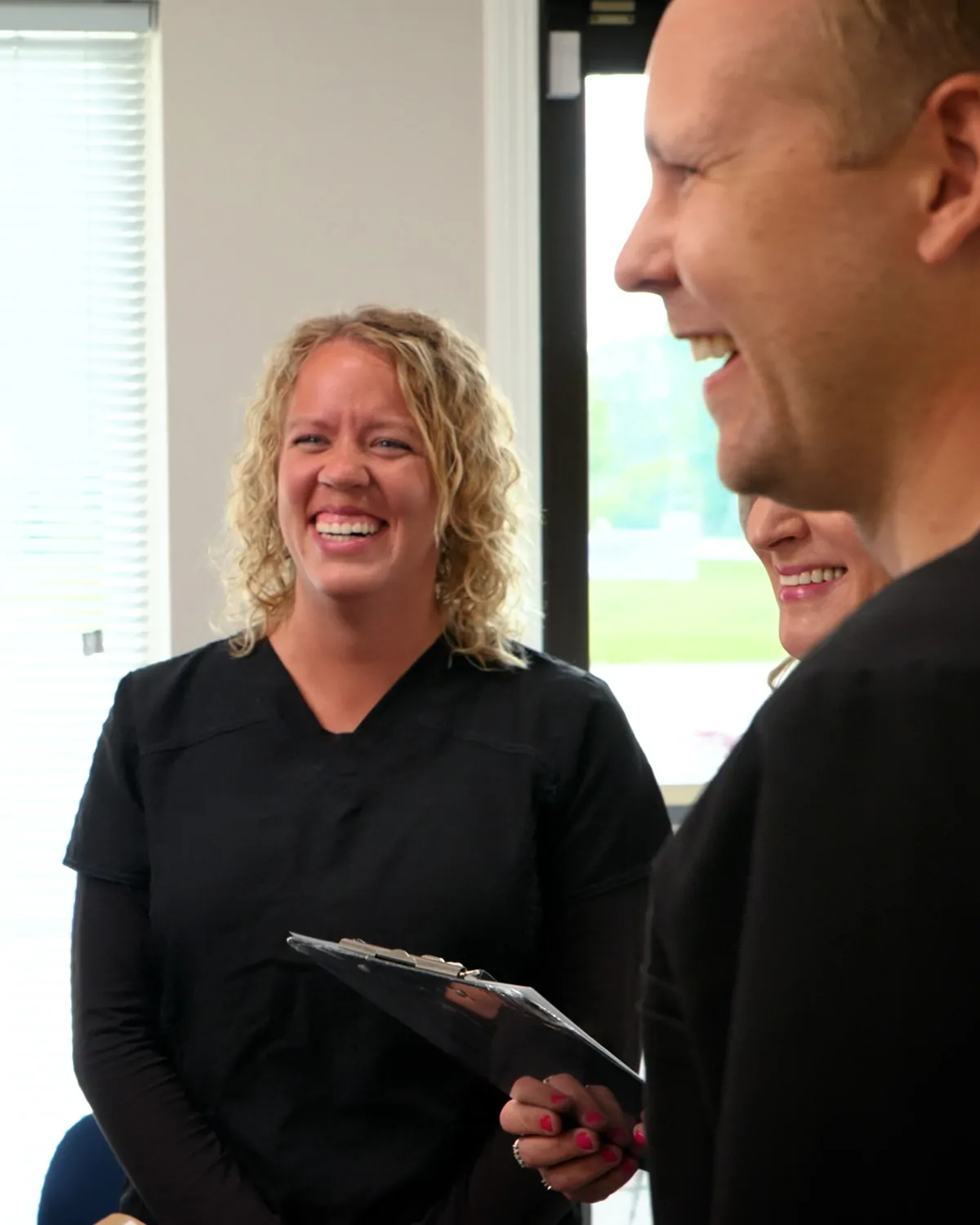Bone grafting is a procedure that helps restore lost bone in the jaw, often necessary before dental implants are placed or after a dental injury has occurred. During the procedure, bone material is placed in areas with insufficient bone density or quality to encourage new growth and provide a strong foundation for future dental work. Our Grand Rapids dentist can perform a bone graft in-house to support long-term dental stability and improve your smile’s function and appearance.
Learn more about dental bone grafting below.

Am I a Candidate for Bone Grafting?
A is often recommended when the jawbone isn’t thick or strong enough to support future dental procedures, such as tooth implants. If bone loss has occurred, a graft helps rebuild the jaw to restore structure and function.
You may be eligible for a dental bone graft if you:
- Plan to receive dental implants
- Have experienced bone loss due to gum disease
- Recently underwent tooth extraction
- Have lost one or more teeth but aren’t pursuing implants
- Suffered dental trauma that affected the jawbone
Our dentist will conduct a thorough evaluation to determine whether the dental graft procedure is appropriate. Digital imaging and a review of your dental and medical history will help ensure this is the right treatment for your long-term oral health.
Myths About Dental Bone Grafts
Bone grafting is often misunderstood, leading many patients to feel hesitant about the procedure. One of the most common misconceptions is that bone grafting is extremely painful. In reality, modern techniques and local anesthesia make the procedure much more comfortable than many expect. Post-operative soreness is usually mild and can be managed with over-the-counter or prescribed medication.
Another myth is that only older adults need dental bone grafts. While it’s true that bone loss can increase with age, patients of all ages may need a graft—especially if they’ve experienced trauma, extractions, or advanced gum disease.
Some also worry that bone grafts are risky. However, before recommending the procedure, our dental bone graft dentist evaluates your health, oral hygiene, and likelihood of following post-op care instructions. These steps help reduce risk and increase success rates. Thanks to advancements in grafting materials and dental technology, bone grafting is now a routine and highly predictable part of many treatment plans.

